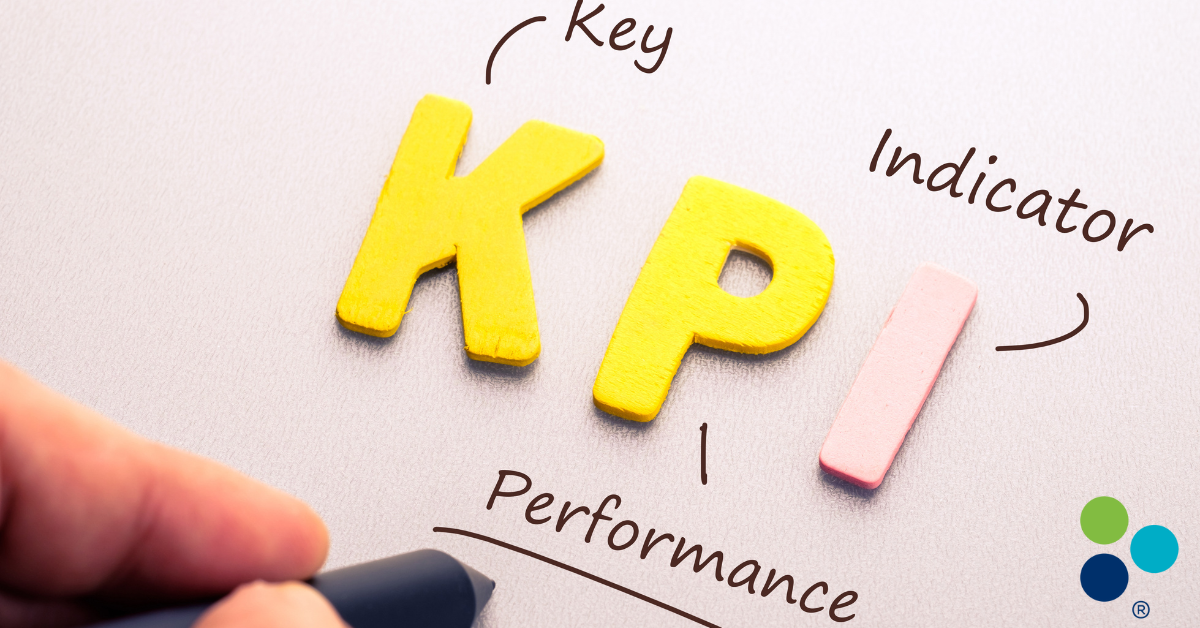
In April, our tactical team went to Digital Summit, where marketing guru Seth Godin kicked off as the keynote speaker. He discussed the marketing funnel and the importance of stopping leaks in it.
The marketing funnel describes the customer journey from beginning to end – from when a potential customer learns about your business to their purchasing (Godin has an excellent blog post on the marketing funnel if you want to learn more).
In line with his observations, businesses today recognize the need for effective tools to measure performance, gain valuable insights, and identify areas for improvement within their marketing funnels. Enter key performance indicators (KPIs), an indispensable tool for businesses seeking to thrive in an increasingly competitive landscape.
Properly identifying KPIs is essential in monitoring potential funnel leaks – when a would-be customer slips through the cracks and doesn't result in a conversion. These leaks can happen in various stages of the customer journey and indicate a potential flaw or inefficiency in the funnel.
Without accurate data points from KPIs, you'll struggle to see where in the funnel you're losing your ideal customer. They can also help ensure that the touchpoints along your customer journey remain effective.
Today, we’ll dig deep into KPIs, answering the question – what is a KPI? How can we gain insights from them that contribute to success? By the end of this article, you'll understand how to use KPIs for data-driven decision-making that optimizes your strategy, operations, and, ultimately, your bottom line.
KPI stands for key performance indicators. It’s a metric or data point used to measure performance and progress toward specific goals or objectives. KPIs act as guideposts that enable businesses to track their performances, evaluate the effectiveness of their strategies, and make data-driven decisions.
By defining and tracking relevant KPIs, you can gain insights into various aspects of your operations. These measurement tools allow organizations to assess performance against predetermined targets, benchmarks, or industry standards.
When selecting KPIs, aligning them with your business objectives is crucial. Every organization has unique goals and priorities, and your choice of KPIs should reflect those.
By setting clear objectives and selecting KPIs based on those objectives, you can ensure your performance measurement efforts are purposeful and aligned with broader strategic goals.
Now that we’ve laid the groundwork for KPIs, let’s work on our practical understanding. Here are some smart KPI metrics across different areas:
These KPIs help assess the effectiveness of marketing campaigns and strategies:
These KPIs measure the quality of customer service interactions and overall customer experience:
These KPIs measure project performance and ensure successful project delivery:
Understanding KPIs and how to apply them is key to success in today’s competitive business landscape. By defining clear objectives, selecting relevant and measurable KPIs, and tracking progress against these indicators, you can gain valuable insights, make informed decisions, and continuously improve.
As you work towards successful outcomes, you must recognize that negative results provide valuable data and insights. It may be disheartening to realize your business is underperforming in certain areas, but these experiences offer opportunities for learning and growth. Let’s explore a hypothetical campaign to illustrate this point.
Imagine you’re running a digital marketing campaign aimed at promoting a new mobile app. The campaign includes various marketing channels, including a dedicated landing page, social media advertising, and influencer partnerships.
You use the following KPIs to evaluate the campaign’s effectiveness and adjust your strategy:
You have a low conversion rate, which means not many website visitors are downloading the app. This metric could indicate a weak call-to-action, a confusing landing page, or ineffective targeting.
By analyzing this negative result, you can identify areas of improvement, such as optimizing the landing page design, refining the ad targeting criteria, or enhancing messaging to better convey your unique value proposition.
CPA measures the average cost to get a new user to download the application. You notice your CPA is high, indicating inefficiencies in ad targeting, ineffective ad copy, or poor budget allocation.
Evaluating this negative outcome provides an opportunity to fine-tune the targeting parameters, optimize ad creatives, or adjust the budget to maximize the campaign’s return on investment (ROI).
These metrics encompass retention rate, session duration, and in-app purchases; they can provide insights into user behavior and satisfaction. You realize you have poor app engagement metrics, which suggest issues with the app’s user experience, performance, or value proposition.
Dig into these negative outcomes to identify pain points, prioritize enhancing specific features, and improve the user experience to drive higher engagement and satisfaction.
Monitoring social media metrics like comments, shares, and overall sentiment offer valuable insights into the campaign's impact and audience perception. Suppose you have a lack of engagement or negative sentiment that indicates a need for adjustments in messaging, content strategy, or influencer partnerships.
You can leverage this negative feedback to understand your target audience better, adjust messaging accordingly, and make informed decisions to enhance the campaign’s effectiveness.
Negative results serve as catalysts for improvement. As you can see, closely monitoring and evaluating KPIs allows you to identify areas of weakness, inefficiencies, or missed opportunities.
These insights enable you to make data-driven adjustments, optimize your strategies, and ultimately achieve better outcomes. Moreover, embracing negative results as valuable feedback supports a culture of continuous learning and growth, positioning a business for long-term success.
KPIs serve as powerful tools for tracking performance and driving business success. It’s crucial to stop leaks in the funnel by using KPIs to monitor and improve key business processes. Remember, KPIs help identify where your leaks are happening and help you make necessary adjustments to optimize your strategies for better outcomes.
If you’re looking for expert assistance in leveraging KPIs to drive your business forward, Brand3 is here to help. Our unique approach aligns brand, marketing, and customer experience into a solid strategic plan. We use data-driven insights to monitor and adjust marketing campaigns for our clients’ success.
Use KPI metrics to gain data-driven insights and engage the right customers to achieve your full market potential. Don’t waste time and money on ineffective marketing strategies – schedule a call today.



